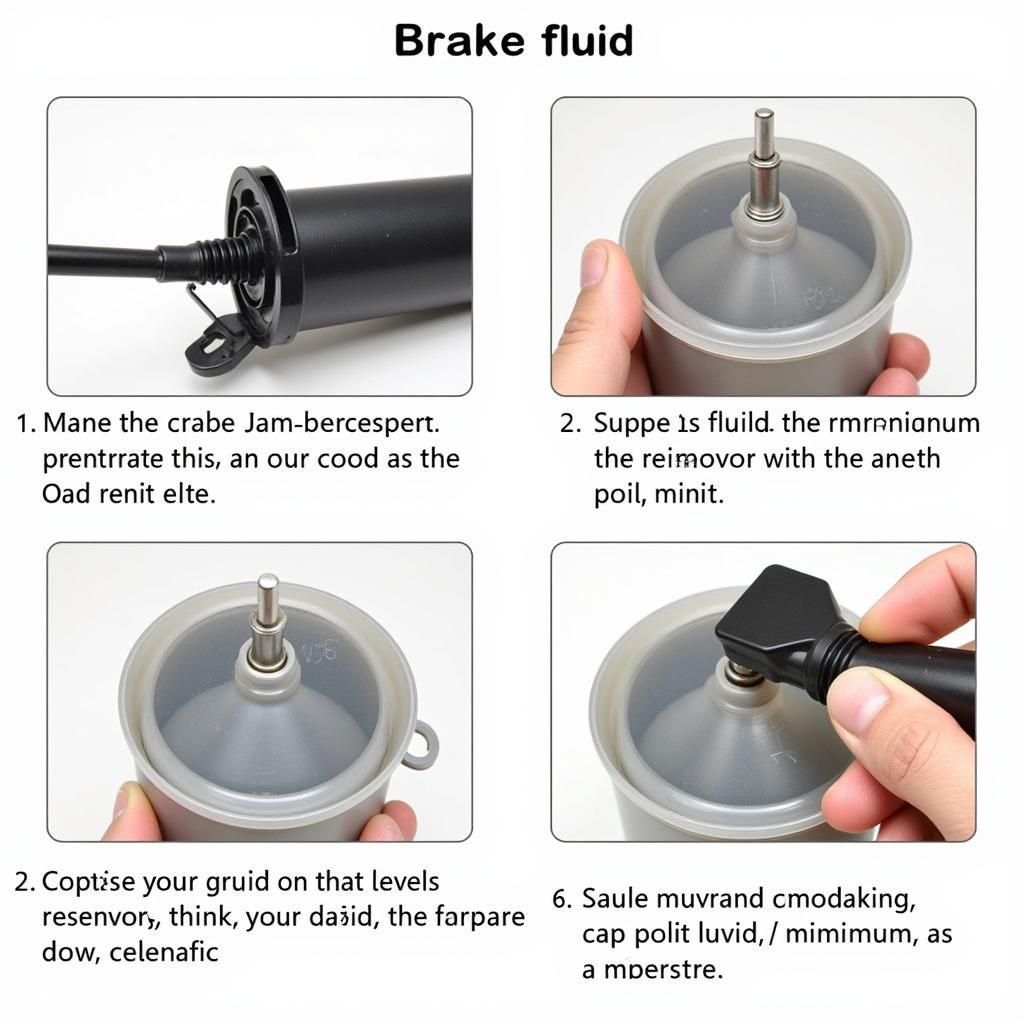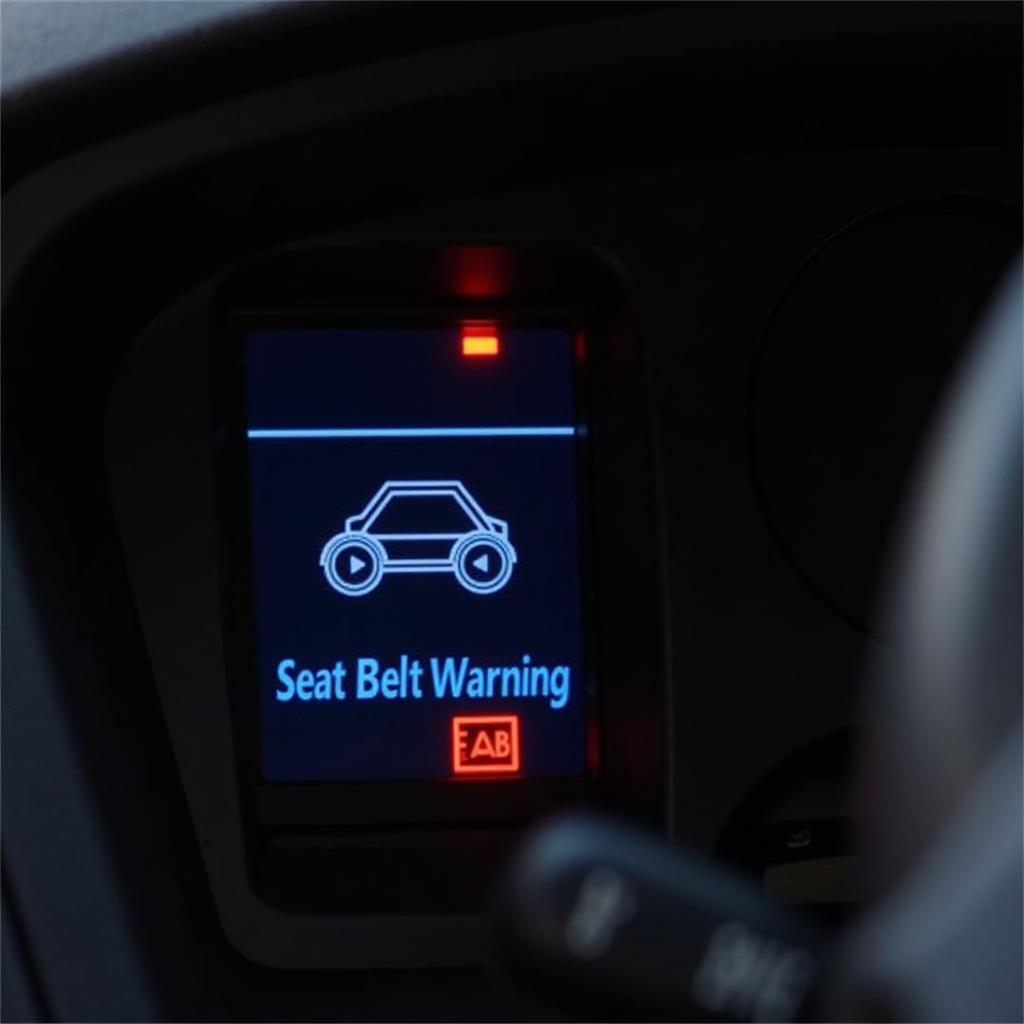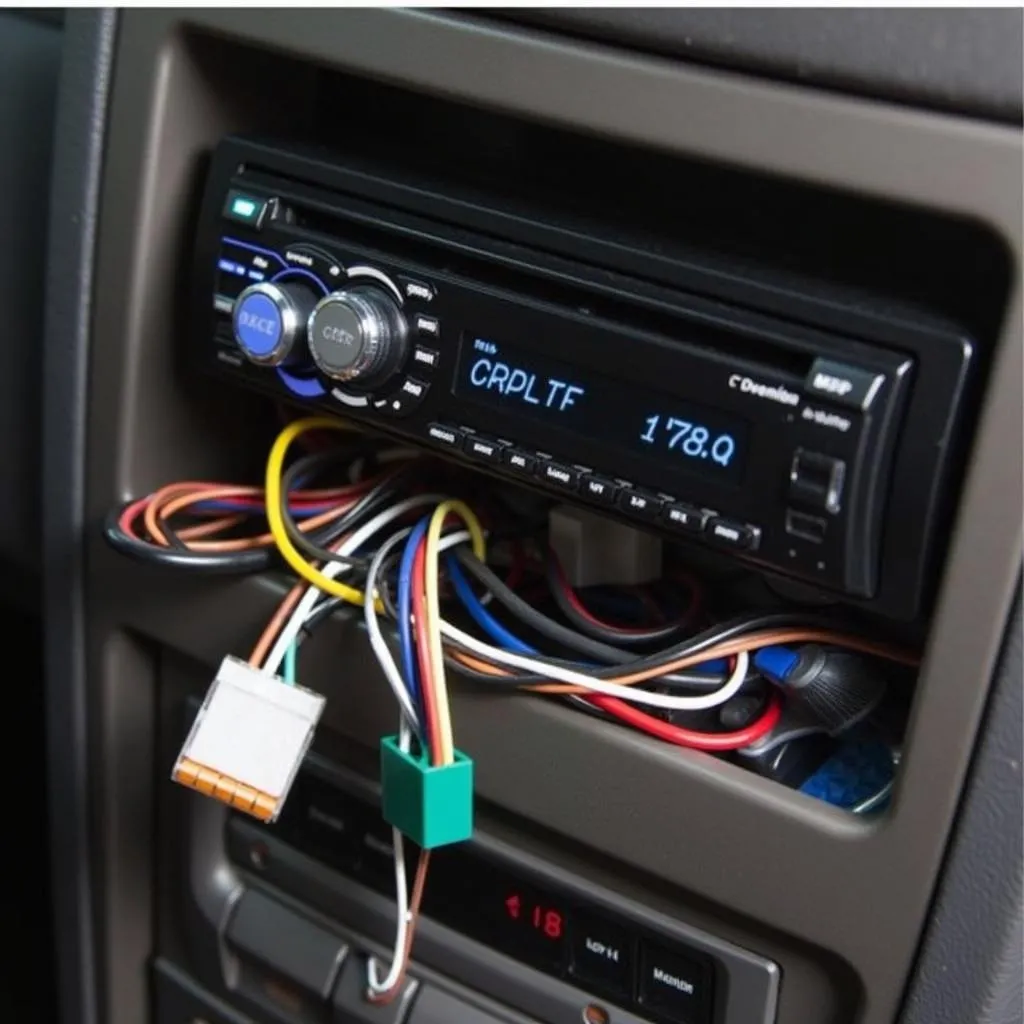Your car’s brake warning light is a critical safety feature. If it’s staying on, it signals a potential problem that demands immediate attention. Ignoring it could compromise your braking system and put you and others at risk. This guide explores the common causes of a persistent brake warning light, offering solutions and guidance on how to address this important issue.
Similar to a vehicle brake system warning light, a persistent brake warning light shouldn’t be ignored. Let’s dive into why your brake warning light might be staying on. The most common culprit is low brake fluid. Your brake system operates using hydraulic pressure, and insufficient fluid can severely impact its effectiveness. This can be due to a leak or simply needing a top-up.
Why is My Brake Warning Light Staying On?
Several factors can cause your brake warning light to remain illuminated. Pinpointing the exact reason requires a systematic approach. Start by checking the obvious: your parking brake. Ensure it’s fully disengaged. If the light persists, the issue is likely more complex.
Common Causes of a Persistent Brake Warning Light
- Low Brake Fluid: This is the most frequent cause. A leak in the brake lines, calipers, or wheel cylinders can deplete fluid levels, triggering the warning light.
- Worn Brake Pads: Thin brake pads activate a sensor that illuminates the warning light, indicating they need replacement.
- Faulty Brake Light Switch: Sometimes, a malfunctioning brake light switch can cause the warning light to stay on, even though the brakes are working correctly.
- ABS Issues: Problems with the Anti-lock Braking System (ABS), such as a faulty sensor or module, can trigger the warning light.
- Master Cylinder Problems: The master cylinder is the heart of your braking system. If it’s failing, it can cause a loss of pressure and trigger the warning light.
 Checking Brake Fluid Level
Checking Brake Fluid Level
Diagnosing the Problem
Diagnosing a brake warning light issue can involve various methods, from visual inspections to using specialized diagnostic tools. A visual check can reveal leaks or worn brake pads. However, for more complex issues, consulting a qualified technician is recommended. They can use advanced diagnostic equipment to pinpoint ABS or master cylinder problems.
This is quite like why is my brake warning light staying on. Let’s explore some specific examples. For instance, the brake warning light on 2003 ford taurus can have similar underlying causes.
What to Do When Your Brake Warning Light Stays On
If your brake warning light remains on, don’t panic. Pull over to a safe location and check your parking brake. If it’s disengaged and the light persists, carefully check your brake fluid level. If it’s low, adding brake fluid might temporarily solve the problem, but it’s crucial to address the underlying cause of the leak.
Steps to Take
- Check the Parking Brake: Ensure the parking brake is completely released.
- Inspect Brake Fluid Level: If low, add brake fluid but seek professional help to identify the cause of the leak.
- Check Brake Pads: Inspect your brake pads for wear. If they are thin, replace them.
- Consult a Technician: If the problem persists, take your car to a qualified technician for a thorough diagnosis.
“Regular brake system checks are essential for safe driving,” advises John Smith, ASE Certified Master Technician. “Don’t wait for the warning light to illuminate before addressing potential issues.”
Brake Warning Light FAQs
- Is it safe to drive with the brake warning light on? No, it’s not recommended. Driving with a persistent brake warning light can be dangerous.
- What does a flashing brake warning light mean? A flashing light often indicates a more serious problem, potentially with the ABS.
- How much does it cost to fix a brake warning light issue? The cost varies depending on the underlying cause.
- Can I fix the brake warning light myself? Simple tasks like topping up brake fluid can be done DIY, but complex issues require professional help.
- How often should I check my brake fluid? It’s recommended to check your brake fluid level at least once a month.
- What type of brake fluid should I use? Consult your owner’s manual for the recommended brake fluid type.
- Can a bad sensor cause the brake warning light to stay on? Yes, a faulty sensor, particularly in the ABS, can trigger the warning light.
The 2013 ford fusion electric parking brake warning for example, demonstrates how specific models can have unique warning light triggers. Even a seemingly unrelated issue like the bmw r1200gs brake failure warning light flashing reinforces the importance of addressing brake warnings promptly.
Conclusion
A brake warning light staying on is a serious issue that requires immediate attention. By understanding the common causes and taking appropriate action, you can ensure your safety and prevent further damage to your braking system. Never ignore this vital warning; addressing it promptly can save you time, money, and potentially prevent an accident. Don’t delay, check your brakes today.


